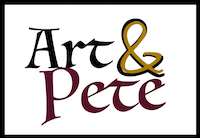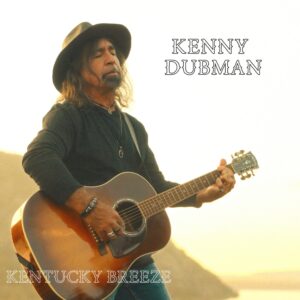
Prelude: After SXSW started, whenever any representatives of the event traveled around the country to different cities, almost invariably someone would say to us, “The City must love you.” Here we almost always paused, not sure what to say. In point of fact, especially in the early years, dealing with the City presented some of the event’s biggest problems.
Introduction: Recently for a documentary on the Saxon Pub, I was involved in a roundtable discussion at Threadgill’s with Joe Ables (Saxon Pub), James White (Broken Spoke), Susan Antone (Antone’s), Steve Wertheimer (Continental Club, C-Boys), and our host, Threadgill’s owner Eddie Wilson. Talking about the past, the present, the future, some amazing stories were shared. What proved almost predictable is that all are still driven by a passion for music and a commitment to the scene. Unfortunately, also not surprising, they all agreed that in the history and present of their clubs most of the biggest problems confronting them involved dealing with the City – the maze of codes, often conflicting or contradicting each other, the constant backload of applications making everything move so slowly, and the myriad enforcement agents.
Very carefully, they made it clear that they were not complaining about individuals or even departments but rather the complex, time-consuming permitting process that almost always both delays a project and drives up its cost, often significantly.
“Live Music Capital of the World”?
On Liberty Lunch closing: “In the midst of all this, the city gets ready to take out another beloved music institution, Liberty Lunch. This city calls itself ‘The Live Music Capital of the World.’ I’ve always found this incredibly embarrassing and hopelessly square. When asked if he thought of himself as a poet, Robert Frost replied that ‘poet’ was a gift word. You can’t give it to yourself, others have to give it to you. Branson, Missouri, also calls itself ‘The Live Music Capital of the World,’ and I’d rather give it to them. If you have it, shut up about it. … Yet the city does precious little but pay lip service to music. … [Given] the jungle of complex and often contradictory regulations that affect live music clubs, the city government talks the talk of supporting music, but doesn’t walk the walk.” (“Page Two,” Dec. 18, 1998)
On the noise ordinance: “‘The Live Music Capital of the World’ has always been a regrettable and obnoxious phrase thought up by those who probably almost never actually support the clubs. … [N]ow we should amend it to ‘The Quieter Live Music Capital.’ If this ordinance is passed, I vote for a brand new name: ‘The Lip Service Capital of the World,’ a gift title that, sadly, Council, business, and community leaders will have earned. It reflects the unfortunate distance between talk … [and] actually supporting Austin’s most vital culture.” (“Page Two,” Nov. 29, 2002)
On the squeeze on Red River clubs: “Tributes to live music are offered much like the ‘hallelujah’ chorus from the lips of politicians and community leaders. There are few civic events, no matter how distanced they are from music, at which beautiful bouquets of loving phrases and appreciative sighs are not offered. … Rarely, even among politicians, has so much verbiage had so little positive activity associated with it.” (“Page Two,” June 13, 2008)
The above quotes from past columns should make very clear not just a certain lack of enthusiasm for the slogan, but more than that a sense that it is hypocritical – the empty catchphrase of a city that “loves” music but rarely civically supports it. Honestly, there really isn’t much a city can do to support any art scene. Art is inherently qualitative. Public funding, even when guided by the most pristine group of judges, is inherently quantitative and therefore political. A broad spectrum has to be offered equal access to civic support, with quality and brilliance only two of the many factors considered. Coming from public money, arts funding has always been controversial. The live music clubs are the fertile ground that have grown and continue to nourish the scene. There is no evil grinch here; the tsunami of codes, restrictions, and regulations have been passed in bits and pieces over decades. Given this city’s involved citizenry, these efforts have come from experts and industry, activists and lobbyists, neighborhood groups and concerned individuals. Those assigned the task of enforcing codes, almost always already dealing with impossible caseloads, are working with layers of rules added piecemeal over so many years that are rarely aligned with those of other city departments.
Mayor Adler has eloquently and intelligently addressed this problem. Though I’m not given too much in the way of hopeful idealism, there does seem to be an obvious step forward. Already the City is talking about initiating an expedited permitting process in 2017. There is the obvious concern that no matter how well-intentioned the attempt is that it will end up serving large developers and companies well, but perhaps Austin independent businesses not so much. But almost immediately the City could create a job or a department devoted to being a one-stop permitting shop for those clubs offering original live music. By empowering knowledgeable city staff to aid and assist, just maybe there’ll be fewer of the stories I heard the other day of projects dragging on for months past projected deadlines and accompanied by ever-escalating expenses. This is the city that created SIMS and HAAM. Certainly it can reach out to show real support for the clubs.


Got opinions about food, arts, shopping, and everything else good in Austin? Let your voice be heard in our annual Best of Austin ballot. Voting is open now!






